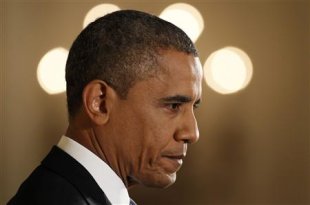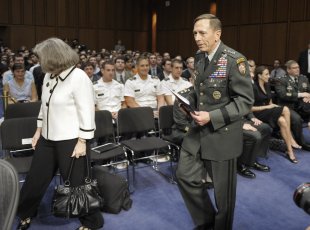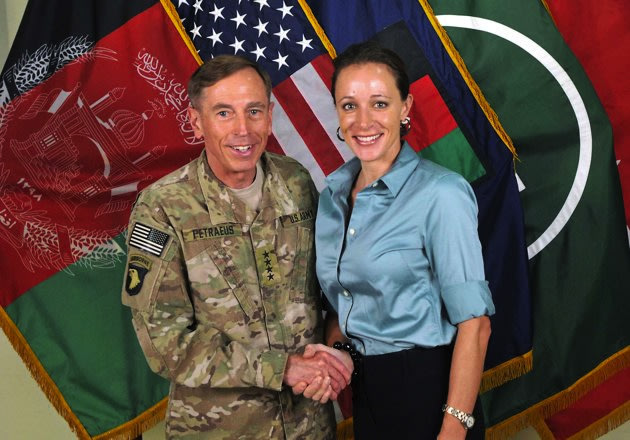DUBLIN (AP) — The debate over legalizing abortion in Ireland flared Wednesday after the government confirmed that a woman in the midst of a miscarriage was refused an abortion and died in an Irish hospital after suffering from blood poisoning.
Prime Minister Enda Kenny said he was awaiting findings from three investigations into the death of Savita Halappanavar, a 31-year-old Indian woman who was 17 weeks pregnant. Her case highlighted the legal limbo in which pregnant women facing severe health problems can find themselves in predominantly Catholic Ireland.
Ireland's constitution officially bans abortion, but a 1992 Supreme Court ruling found the procedure should be legalized for situations when the woman's life is at risk from continuing the pregnancy. Five governments since have refused to pass a law resolving the confusion, leaving Irish hospitals reluctant to terminate pregnancies except in the most obviously life-threatening circumstances.
The vast bulk of Irish women wanting abortions, an estimated 4,000 per year, simply travel next door to England, where abortion has been legal on demand since 1967. But that option is difficult, if not impossible, for women in failing health.
Halappanavar's husband, Praveen, said doctors at University Hospital Galway in western Ireland determined she was miscarrying within hours of her hospitalization for severe pain on Sunday, Oct. 21. He said over the next three days, doctors refused their requests for an abortion to combat her surging pain and fading health.
The hospital declined to say whether doctors believed Halappanavar's blood poisoning could have been reversed had she received an abortion rather than waiting for the fetus to die on its own. In a statement, it described its own investigation into the death, and a parallel probe by the government's Health Service Executive, as "standard practice" whenever a pregnant woman dies in a hospital. The Galway coroner also planned a public inquest.
"Savita was really in agony. She was very upset, but she accepted she was losing the baby," he told The Irish Times in a telephone interview from Belgaum, southwest India. "When the consultant came on the ward rounds on Monday morning, Savita asked if they could not save the baby, could they induce to end the pregnancy? The consultant said: 'As long as there is a fetal heartbeat, we can't do anything.'
"Again on Tuesday morning ... the consultant said it was the law, that this is a Catholic country. Savita said: 'I am neither Irish nor Catholic' but they said there was nothing they could do," Praveen Halappanavar said.
He said his wife vomited repeatedly and collapsed in a restroom that night, but doctors wouldn't terminate the fetus because its heart was still beating.
The fetus died the following day and its remains were surgically removed. Within hours, Savita was placed under sedation in intensive care with blood poisoning and he was never able to speak with her again, her husband said. By Saturday, her heart, kidneys and liver had stopped working. She was pronounced dead early Sunday, Oct. 28.
The couple had settled in 2008 in Galway, where Praveen Halappanavar works as an engineer at the medical devices manufacturer Boston Scientific. His wife was qualified as a dentist but had taken time off for her pregnancy. Her parents in India had just visited them in Galway and left the day before her hospitalization.
Praveen Halappanavar said he took his wife's remains back to India for a Hindu funeral and cremation Nov. 3. News of the circumstances that led to her death emerged Tuesday in Galway after the Indian community canceled the city's annual Diwali festival. Savita Halappanavar had been one of the festival's main organizers.
Opposition politicians appealed Wednesday for Kenny's government to introduce legislation immediately to make the 1992 Supreme Court judgment part of statutory law. Barring any such bill, the only legislation defining the illegality of abortion in Ireland dates to 1861, when the entire island was part of the United Kingdom. That British law, still valid here due to Irish inaction on the matter, states it is a crime punishable by life imprisonment to "procure a miscarriage."
In the 1992 case, a 14-year-old girl identified in court only as "X'' successfully sued the government for the right to have an abortion in England. She had been raped by a neighbor. When her parents reported the crime to police, the attorney general ordered her not to travel abroad for an abortion, arguing this would violate Ireland's constitution.
The Supreme Court ruled she should be permitted an abortion in Ireland, never mind England, because she was making credible threats to commit suicide if refused one. During the case, the girl reportedly suffered a miscarriage.
Since then, Irish governments twice have sought public approval to legalize abortion in life-threatening circumstances — but excluding a suicide threat as acceptable grounds. Both times voters rejected the proposed amendments.
Legal and political analysts broadly agree that no Irish government since 1992 has needed public approval to pass a law that backs the Supreme Court ruling. They say governments have been reluctant to be seen legalizing even limited access to abortion in a country that is more than 80 percent Catholic.
An abortions right group, Choice Ireland, said Halappanavar might not have died had any previous government legislated in line with the X judgment. Earlier this year, the government rejected an opposition bill to do this.
"Today, some 20 years after the X case, we find ourselves asking the same question: If a woman is pregnant, her life in jeopardy, can she even establish whether she has a right to a termination here in Ireland?" said Choice Ireland spokeswoman Stephanie Lord.
Coincidentally, the government said it received a long-awaited expert report Tuesday proposing possible changes to Irish abortion law shortly before news of Savita Halappanavar's death broke. The government commissioned the report two years ago after the European Court of Human Rights ruled that Ireland's inadequate access to abortions for life-threatening pregnancies violated European Union law.
The World Health Organization, meanwhile, identifies Ireland as an unusually safe place to be pregnant. Its most recent report on global maternal death rates found that only three out of every 100,000 women die in childbirth in Ireland, compared with an average of 14 in Europe and North America, 190 in Asia and 590 in Africa.





